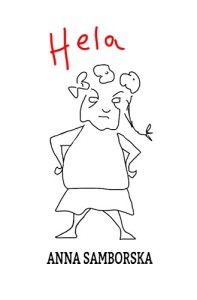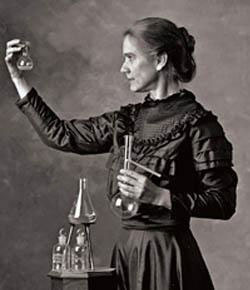 Hela: A Novel of Science, Faith, Love and Poland
Hela: A Novel of Science, Faith, Love and Poland
Anna Samborska
Maestra Press 2016
I had some money put away but since living became so expensive, the rents went up, and the utilities, while the salaries stayed the same so every now and then I had to use those savings as, for example, when the washer broke down after warranty and the gas stove had to be replaced and the building management had to replace the plumbing and in so doing destroyed the tiles so this also I had to pay for from my own pocket…. It was very hard on me, especially given my nerves and not enjoying the best health.
It is with this sad story that we are introduced to the titular heroine of Anna Samborska’s 2016 work Hela: A Novel of Science, Faith, Love and Poland. Samborska’s deft ear for her character’s distinct conversational tone is immediately evident – as is the heroine’s struggle to find her way in post-1989 Poland. In the story that follows, readers get to know Hela and the eccentric personalities that surround her as she navigates a world – and a body – in which she no longer quite fits. As the story around her offers up twists and turns both familiar and outlandish, Hela’s candor throughout makes her a character that readers will likely recognize with both affection and frustration.
Described as a “medical thriller,” the novel follows Hela as she finds herself in the center of the shadowy and fantastic trials of a powerful corporation. Having agreed to be a test subject in a desperate effort to alleviate medical debt, Hela ends up in a situation far beyond what she bargained for. As the narrative unfolds – relayed in Hela’s unique voice and from her point of view – readers uncover clues along with the character. Like Hela, we wonder what she has gotten into. An experimental diet? A reality TV show? Food science trials? GMO testing? On her journey, Hela meets a diverse cast of characters; a young roommate who challenges some of her more outdated views, a handsome doctor who would perhaps rather be a pianist, a duchess looking to reclaim her ancestral home, and… the pope? When the truth is revealed, it is both unexpected (at least for this reader) and intriguing. Along the way to the satisfying conclusion, readers are treated to a picture of Hela and a world that is both humorous and poignant. Though extraordinary, Hela’s story is also familiar. It is one of transition – both individual and societal – and explores what it feels like to find yourself “out of step” with the times.
Inspired by true stories and characters, it is perhaps not surprising that Hela comes across as a recognizable figure. Samborska notes on her website that Hela “reminded me of many women from my family, like my grandmother whom I only know through her diaries. In many ways Hela is a common person, maybe not even a very ‘nice’ person, but to me she was different enough from all known literary personalities to keep exploring her story.” Indeed, Hela is not always “nice” – in fact, she can be exasperating, particularly to readers who find her views on gender relations outdated and her national prejudices problematic. She is, however, endearing and vividly rendered – like an aging relative who occasionally says inappropriate things at the dinner table, but who you love for her frankness and spirit. Samborska’s characterization captures this tension and balances a warm and sympathetic portrayal of Hela with a critical eye.
As readers get to know Hela, they are also introduced to details of her world – many of which likely will resonate with those familiar with Poland. As someone who on a number of occasions has found herself in Polish post offices frustrated and somewhat perplexed by the queuing system, I smiled with recognition as Hela complained, “I don’t like the post office because no matter what time you come there is always a huge line. Even when they introduced those printed tickets people still figured out how to jump the queue and push past each other,” (4). Whether in small situational details like this, or Hela’s tendency to partake in what might be called Poland’s “culture of complaining” (one need look no farther than the opening lines for a taste of this), Samborska conveys a sensitive and finely observed portrait of Poland that shines through the more unbelievable aspects of the story.
Just as many details of Hela’s world may be familiar, so too does the novel’s exploration of generational divides and nostalgia feel true to life. In a story that contrasts wealth and poverty, science and faith, and modernity and tradition, Hela often finds herself on the losing side standing in today’s world. Many of the substantive conversations on these matters come in Hela’s talks with her young roommate Grazyna, which highlight the degree to which views of the world shift generationally. While it may at times seem that Hela would prefer to go back to a time before the Grazynas of the new generation challenged her morals and political change destabilized her future, the novel in fact offers a more complex view of nostalgia and the memories of the past. Though Hela often seems nostalgic for the age when the state guaranteed housing and she took trips with the Workers Vacation Fund, she also is quick to question that same nostalgia from those around her. In an exchange with a young orderly, we see the other side of her rosy visions of the past.
“It must have been wonderful,” he said suddenly, neither to me, nor to himself.
“What’s that?”
“To have lived in the nineteen-sixties.”
I thought he was joking – but no, his face was serious.
“What was it like?” he asked.
“What do you mean?”
“Everything. The music. Radio Luxembourg…the Beatles…”
I was lost for words. What radio? What popular music? There was poverty mixed with hardship, cockroaches, compulsory attendance at First of May parades… But he must have meant something else.
Here, the past is no longer so desirable. She remembers not the joy of the Beatles’ music, but the hardship of life under Communism. Though she may wistfully look back on her state sponsored holidays, she also bears the legacy of compulsory parades and poverty. This underscores Hela’s complicated relationship with Poland’s past, yet also extends beyond her character. The mingling of nostalgia and painful memories speaks not only more broadly to Poles, but also to anyone who has experienced periods of change. Though Hela herself at times seems oblivious to this complexity, it is rendered with nuance throughout Samborska’s novel. Hela refuses simple judgements of the past and present, and instead shows both the pain and promise of transition.
Samborska’s ear for language and understanding of everyday realities of those living in a time of transition was perhaps cultivated in her work in translation and interpretation, particularly for American journalists covering the changes in Poland in the years of transition following the end of Communist control in 1989. In Hela, that knowledge and experience shine through in the playful, yet also poignant, story of transition – of a nation dealing with the pains of political and social change (increased corporate corruption and economic disparity), and of an individual, who, like her nation, finds herself altered in unexpected ways and wondering if it is really for the better. Offering a fast-paced medical mystery over a foundation that explores the implications of change and the power of the past, Hela is an enjoyable read, rich with glimpses of Poland and a compelling central heroine.
In a particularly contemporary twist – one that I have a feeling Hela would not fully understand – readers are invited to connect with the heroine on Facebook. Her profile includes photos from her summer adventures in Poland and promises recipes for Hela’s beloved John Paul II cream slices.
CR
Anna Samborska’s website
Anna Samborska’s Facebook page



